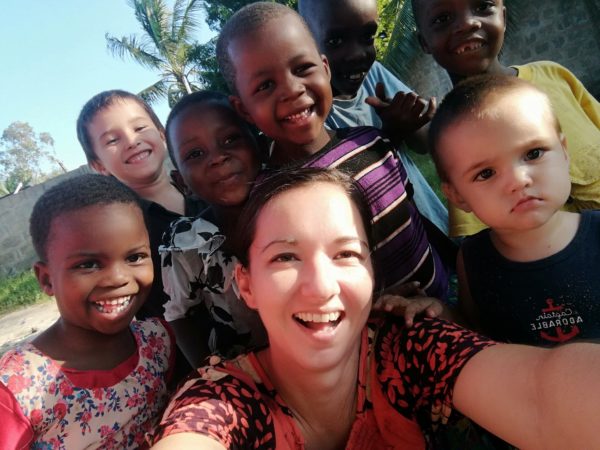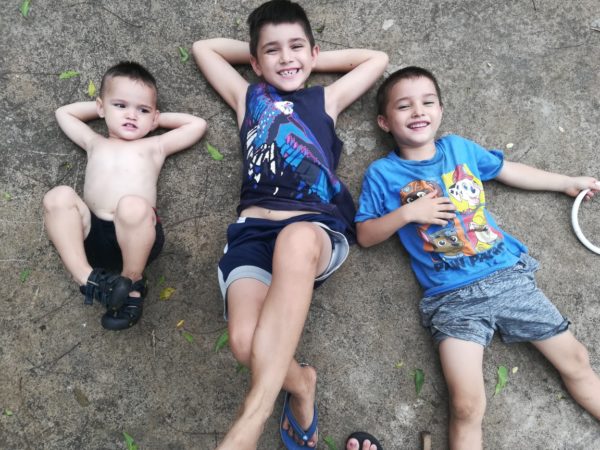In German, we have the word “Heimat,” which is hard to translate into English. The closest English word is home, but any German will tell you that a simple translation like that does not carry the full weight of its meaning.
Heimat is a place where you fit in. Where you know how to act, communicate, and live. It’s a place of familiarity. It’s the opposite of foreign-ness and alienation. It’s where you belong.

For many people, it’s the place where they grew up or the place they have spent most of their lives in. For other people, it is something they long for but have not yet found. Think of refugees, ripped out of their country and placed in a culture so different, so alien, so unexpected. Think of the children of military families, whose growing up years consist of moving every couple of years, never staying in one place long enough to put down deep roots. Or think of missionary families, like us, who choose to leave the familiar to plant themselves in the unfamiliar, and often live lives marked by transitions. For people like us, the longing for Heimat often remains unfulfilled.
Several weeks ago, we decided to give up the house that we had lived in for the last several years in Tanzania. As much as we want to go back there, we just don’t know when we will be able to again, and so the decision to not renew the lease on our rental home was inevitable. For days, I cried and whenever I thought of not returning there.
I cried because this house had truly become our home. It was the place we brought our tiny newborn Mathayo home to in the middle of hot season; the place where we finally started to make meaningful relationships with Tanzanians; the place where Judah and Elias spent hours catching critters, making mudballs, and playing with their friends in Swahili; the place where so many wonderful and challenging homeschooling hours were spent; the home where we went through and came out of some of the hardest years of our lives; the place that taught us gratitude for power and clean water more than ever before; the place where both John and I grew in our faith and trust in the Lord.
I also cried for all the possessions we lost. Elias’ plastic jar with his favorite rocks and shells that he had collected over the years. Mathayo’s baby clothes. Our favorite board games. The school room table that we had made just the right size for our little students. The new shelf John had surprised me with in the living room. My favorite kitchen knives and scrapers. Toys that had endured countless hours in the playful hands of our boys. My beautifully colorful kanga cloths that I wrapped around my waist every day. It’s just “stuff”… but I still cried.
And then I cried because of the relationships that we left behind. Both John and I felt that we were finally starting to be a part of the community, attending weddings and funerals, teaching alongside Tanzanian teachers and doing service projects with the local elementary school. We had neighbors we were forming friendships with and a host family we love dearly and who lived right next door. Although the relationships are still there, we grieve that we cannot be with the people we have learned to love.

C.S. Lewis, one of our favorite authors, once said,
“If I find in myself desires which nothing in this world can satisfy, the only logical explanation is that I was made for another world.”
Losing a home affirms this truth. We all long for a place to call Heimat. We are humans and we were created for belonging. And yet, deep inside, we know that no place on this earth can fulfill all of our desires.
John and I both have strong connections to the places where we grew up – the places we still call home. Yet, when we come back to those places of rootedness after spending some time overseas, we realize we just don’t quite fit in anymore. Sometimes we are unsure how to act or communicate. As much as it is a part of who we are, there is a degree of foreign-ness and alienation. Our minds, hearts and actions have been shaped by our time in other cultures, and that is not something we can just lay down the moment we cross a border. I will always call Germany my Heimat, and for John, Spokane will always be his. Yet, in our hearts and souls, we know that our one true Heimat, the one that will leave no longing unfulfilled, the one where we truly will belong and where all foreign-ness and insecurity is vanquished, the one where everything is right again, where good triumphs and peace reigns, the one place of true rest and refuge — that world is yet to come.